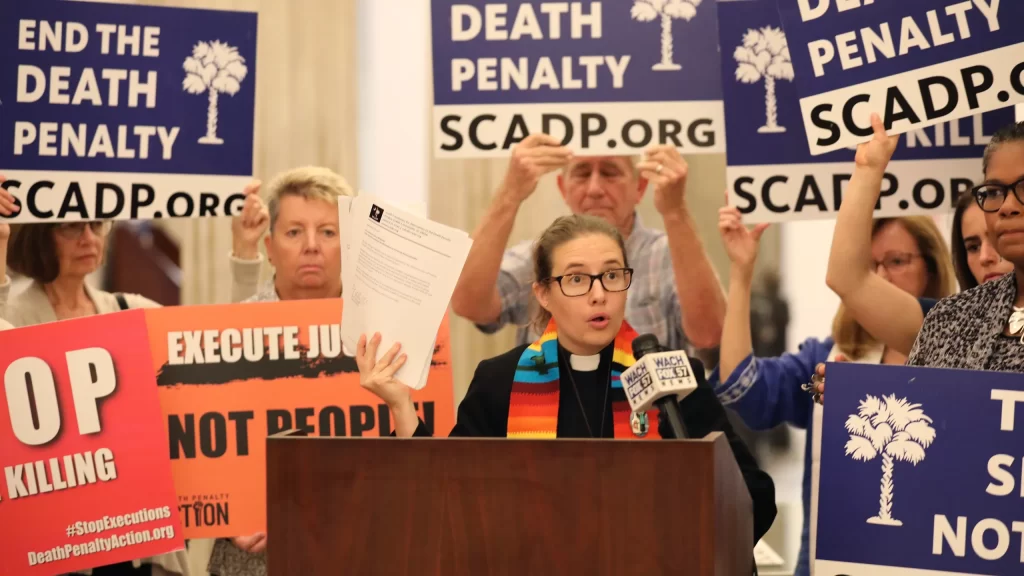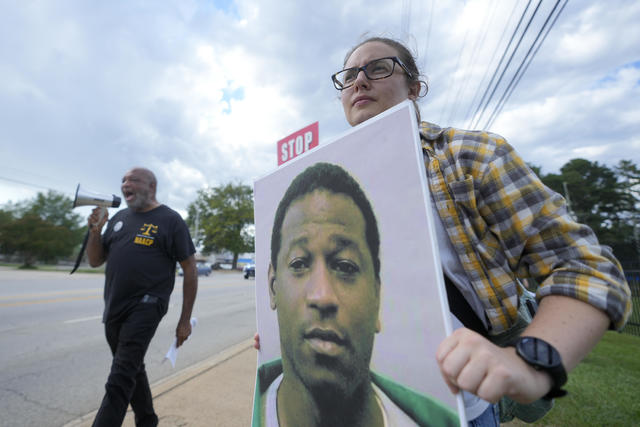South Carolina resumed executions after a 13-year pause with the case of Freddie Owens, who was sentenced to death for the 1997 murder of a convenience store clerk. Owens’ case became significant as it was the first time the state carried out an execution in over a decade, with Owens dying by lethal injection. His execution reignited conversations about capital punishment and the use of lethal injections as an execution method in South Carolina. In this detailed overview, we explore Owens’ life, crimes, legal battles, and the larger implications of his execution.
The Crimes of Freddie Owens
Freddie Owens was convicted for the murder of Irene Graves, a convenience store clerk, during a robbery in Greenville County in 1997. Owens, along with accomplices, embarked on a crime spree that ultimately led to the killing of Graves for a mere $37.29. Owens later confessed to killing a fellow inmate, Christopher Lee, while awaiting trial for Graves’ murder. His violent tendencies and inability to control his impulses played a major role in the prosecution’s decision to seek the death penalty. These acts, coupled with Owens’ violent nature, marked him as a serious threat, fitting the criteria for capital punishment.
Legal Battles and Appeals
Throughout his time on death row, Freddie Owens engaged in numerous legal battles, appealing his conviction on various grounds. His defense argued that Owens suffered from mental health issues, including a learning disability and impulse control disorder, making him less culpable for his actions. Furthermore, Owens’ legal team claimed that racial bias played a role in his sentencing. Despite multiple appeals to higher courts, including the U.S. Supreme Court, his death sentence was upheld, leading to his eventual execution by lethal injection.

South Carolina’s First Execution in Over a Decade
Owens’ execution marked South Carolina’s first execution in 13 years, ending a prolonged period in which the state faced challenges obtaining drugs for lethal injection. This delay was largely due to pharmaceutical companies refusing to provide the drugs traditionally used in executions. As a result, South Carolina adopted a new protocol, using pentobarbital, a sedative that causes death by stopping respiration. Owens’ execution reopened the door for future executions in the state, with several other death row inmates now scheduled for execution.

Lethal Injection and Execution Methods in the United States
The method of execution used in Owens’ case, lethal injection, has been the subject of much debate. For years, states relied on a three-drug cocktail to carry out executions, but as manufacturers of these drugs refused to sell them for this purpose, states like South Carolina turned to alternative methods. The use of pentobarbital is a relatively new method, with several states adopting it as a viable alternative. Critics argue that the lack of transparency around the procurement and use of lethal injection drugs increases the risk of botched executions, adding to the ethical concerns surrounding capital punishment.

Life in Prison: Owens’ Conversion and Personal Changes
During his time in prison, Freddie Owens transformed. He converted to Islam and changed his name to Khalil Divine Black Sun Allah. He spent years educating himself, learning Arabic, Swahili, and sign language, and even teaching other inmates. Despite these efforts to rehabilitate himself, Owens continued to exhibit violent behavior, attacking guards and other inmates. His complex character—a blend of violent tendencies and personal growth—was highlighted throughout his time on death row, but it wasn’t enough to reverse his sentence.
Impact of Owens’ Execution on South Carolina’s Justice System
Owens’ execution had profound implications for the South Carolina justice system. After a 13-year pause, the state resumed its capital punishment practices, paving the way for more executions. With Owens’ case, South Carolina reaffirmed its commitment to upholding capital punishment, despite ongoing debates about the ethics and efficacy of the death penalty. As a result, the state is now preparing to execute several other inmates in the coming months, signaling a resurgence in the use of the death penalty.
The Role of Mental Health in Capital Punishment Cases
One of the key arguments in Owens’ appeals was his struggle with mental health. Testimony during his trials indicated that Owens suffered from brain dysfunction, learning disabilities, and impulse control issues, which led to his violent behavior. Mental health experts argued that these conditions made Owens more likely to perceive threats and act out violently. This raises broader questions about the role of mental health in capital punishment cases and whether individuals with severe psychological issues should be eligible for the death penalty.
Public Reaction and Ethical Debates
The execution of Freddie Owens sparked ethical debates across the state and beyond. Owens’ family, particularly his mother, issued statements calling for compassion and understanding. Owens’ mother claimed that the system had failed both her son and the victims. On the other hand, prosecutors and victims’ families argued that capital punishment was the only outcome for someone who had committed such heinous acts. These opposing viewpoints reflect the broader ethical debate surrounding the use of the death penalty in the United States.
Future of Capital Punishment in the U.S.
Owens’ case raises important questions about the future of capital punishment in the U.S. With states like South Carolina resuming executions after long pauses, the national conversation about the death penalty is far from over. As more states face challenges in procuring lethal injection drugs, the debate will likely continue, with lawmakers and courts weighing the ethical, legal, and practical implications of capital punishment.
Conclusion: A Turning Point in South Carolina’s Execution History
Freddie Owens’ execution marked a significant moment in South Carolina’s capital punishment history. His case, which involved multiple crimes, appeals, and legal battles, exemplified the complexities of the death penalty. As the first person to be executed in South Carolina in 13 years, Owens’ case sets the stage for future executions and renews debates over the ethics and legality of lethal injection as a method of execution. With other inmates slated for execution, the conversation surrounding capital punishment in South Carolina and across the U.S. will continue to evolve.





